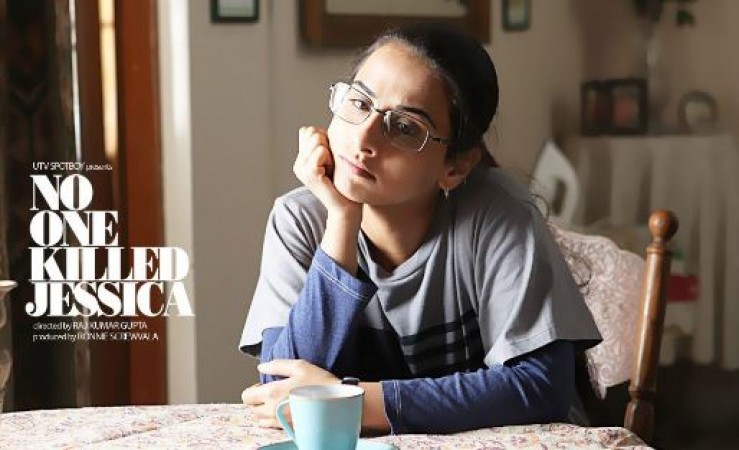
Raj Kumar Gupta's 2011 Bollywood film "No One Killed Jessica" is based on the true events surrounding Jessica Lal, a model and well-known barman who was fatally shot in 1999. The movie examines what happened after her death, the court case that followed, and how the media and public outcry helped bring about justice. With the exception of Sabrina Lall and her family, most characters in the film have made-up names, despite the fact that it accurately depicts the essence of the actual events. This imaginative choice is significant and serves multiple functions, giving the story more depth and nuance.
The murder of Jessica Lal in real life marked a turning point in India's legal and social climate. Jessica Lal was shot and killed on April 29, 1999, at a party held by Manu Sharma, the son of a prominent socialite and politician. Due to the involvement of well-known people and the initially flawed investigation, the case attracted a lot of media attention. It represented the struggle for justice in a corrupt society as well as the power relationships between the privileged elite and the average person.
The filmmakers of "No One Killed Jessica" made a conscious choice to give most of the characters made-up names. Although changing the names of those who appear in a true story may seem counterintuitive, it serves a number of crucial purposes.
Filmmakers frequently use fictitious names to protect the privacy of people who might still be alive and to avoid legal entanglements, according to legal and ethical considerations. They can investigate the plot without risking legal trouble or hurting real people by using fictitious names.
Using fictitious names gives the filmmakers the creative freedom to shape the characters and events in a way that stays true to the real story while also making the necessary changes for cinematic storytelling. This frees them from being constrained by the specifics of actual events so they can develop a compelling story.
Fictional names help the story be more universally appealing to a larger audience. The movie can connect with viewers who might not be familiar with the particulars of the Jessica Lal case by separating the characters from their real-life counterparts. The movie can now comment on more general issues of justice, the media, and societal dynamics because of this universalization.
Focus on Sabrina Lall's Point of View: The filmmakers emphasise Sabrina Lall's family's crucial role in Jessica's quest for justice by using their real names. This choice highlights the contrast between the sincerity of the real victims and the complacency of the privileged elite, humanising them and their unwavering pursuit of the truth.
While the majority of the characters in "No One Killed Jessica" have made-up names, real-life personalities are heavily incorporated into how they are portrayed. For instance, Vidya Balan's portrayal of Sabrina Lall closely resembles the real Sabrina in terms of her unwavering commitment to pursuing justice for her sister. In stark contrast to the callousness and corruption surrounding the case, her character acts as the movie's moral compass.
Rani Mukerji's portrayal of Meera Gaity is based on a composite of several real-life journalists who were instrumental in bringing the case to the public's attention. Meera's commitment to the truth and her unwavering pursuit of justice are a reflection of the journalists' tireless efforts to cover the case, which elevated it to a national scandal.
"No One Killed Jessica" is a potent depiction of a true story that rocked India in film. Except for Sabrina Lall and her family, the majority of the characters were given fictitious names due to careful consideration on the part of the filmmakers, who were able to balance moral and legal considerations with the need to tell a compelling and emotionally resonant story.
Beyond merely telling a story, the movie also makes a comment on more important issues like justice, media ethics, and social inequality. By using the Lall family's real names, the filmmakers emphasise the significance of their search for justice and their unwavering dedication to their sister's memory.
In addition to honouring Jessica Lal's memory, "No One Killed Jessica" also serves as a reminder of the strength of tenacious people who, in the face of insurmountable challenges, refuse to let injustice win. The movie serves as a poignant reminder that while the lines between reality and fiction can sometimes blur in the pursuit of the truth, the pursuit of justice never falters through the use of fictitious names and a combination of fact and fiction.
'Khule-Aam' Marks the Final Chapter of Guru Dutt Productions
The Unconventional Musical Shift in 'Baharen Phir Bhi Aayengi'